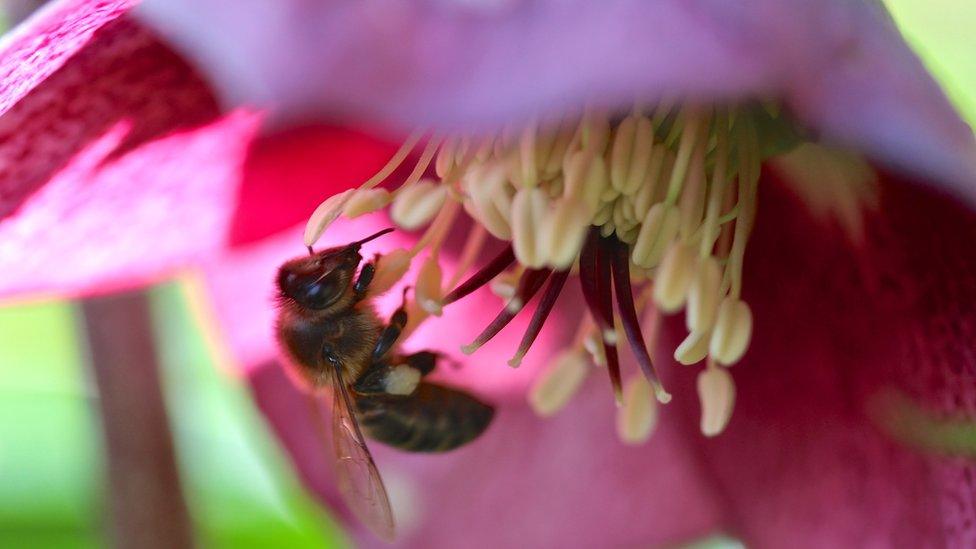Welsh beekeeping industry buzzing again ahead of conference
- Published
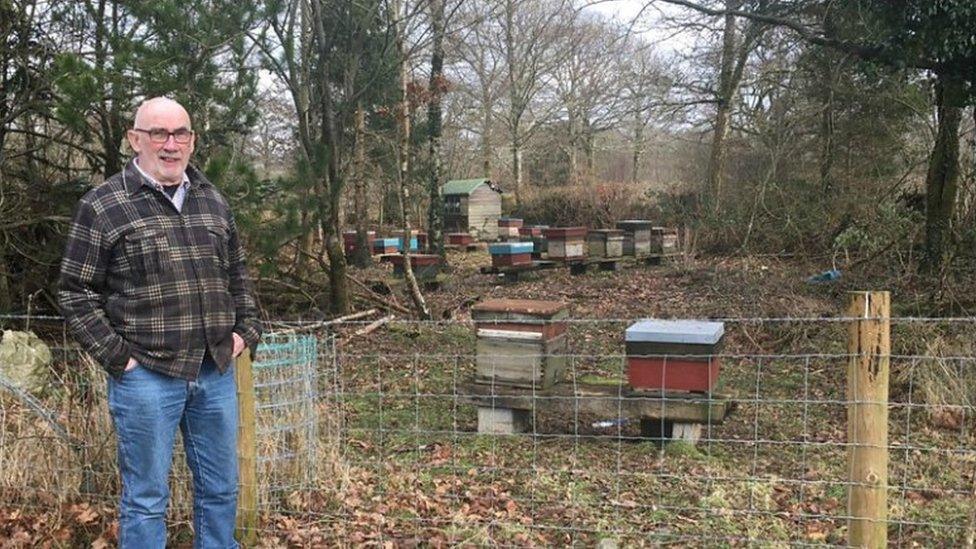
Peter Jenkins and his hives
There were 4,280 beekeepers in Wales in 2016 producing 307 tonnes of honey worth £3m, the National Bee Unit said.
An organisation called Cywain Bee was set up in 2014 to get more people involved in the resurgent industry.
Keepers in Wales range from those making honey and beauty products to those educating people about hives and even helping ex-servicemen with PTSD.
On Thursday, keepers gather for a conference in Machynlleth on the native Welsh bee.
Even though he has been keeping them for more than 50 years having learnt from his father, Peter Jenkins said he is "no expert".
The engineer from Lampeter, who has 48 colonies, said: "The more you do it, the more you realise how little you know.
"They were on the planet for millions of years before man walked the earth in the fully evolved state they're in today and I feel we are only dabbling at it."
He told BBC Radio Wales' Country Focus that in the 1980s, Welsh bees could produce at least £50 worth of honey per colony per year, with very little input from him.
But then varroa - a parasite that lives on the back of a bee and "sucks its blood" - arrived.
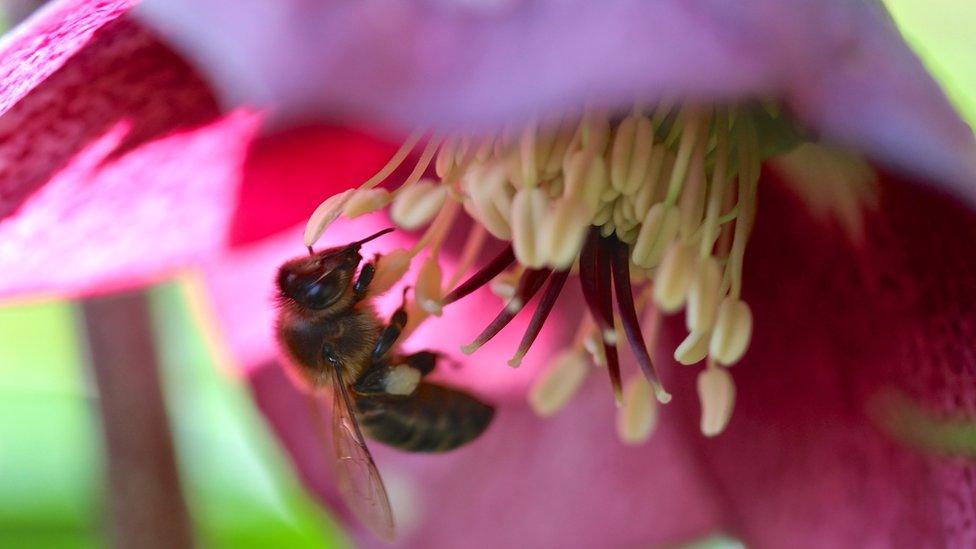
While this had a devastating effect after being brought from India, a new challenge facing producers comes from China.
Mr Jenkins added: "Heather honey, I could sell 10 times as much as I make, it is very popular.
"It is industrially produced in China where it is heated and becomes very thin, which kills enzymes and goodness.
"We take longer and while we can't compete on price, we can on quality."
Mr Jenkins' production is focused on "the Welsh native bee" - which he describes as being "a stronger flyer, which will fly in colder weather, but is slower" and is able to survive through winter with few food stores.
Cywain Bee was set up to get more people involved in beekeeping and development manager, Haf Wyn Hughes, said all people need to be is "very patient and passionate".
She described the benefits to the environment of beekeeping by citing the example of an orchard in north Wales that had a very low yield of crops.
By putting 14 hives on the land, bees helped increase the harvest by about 40%.
"With beekeeping, I always say the difference between try and triumph is that little oomph," she said.
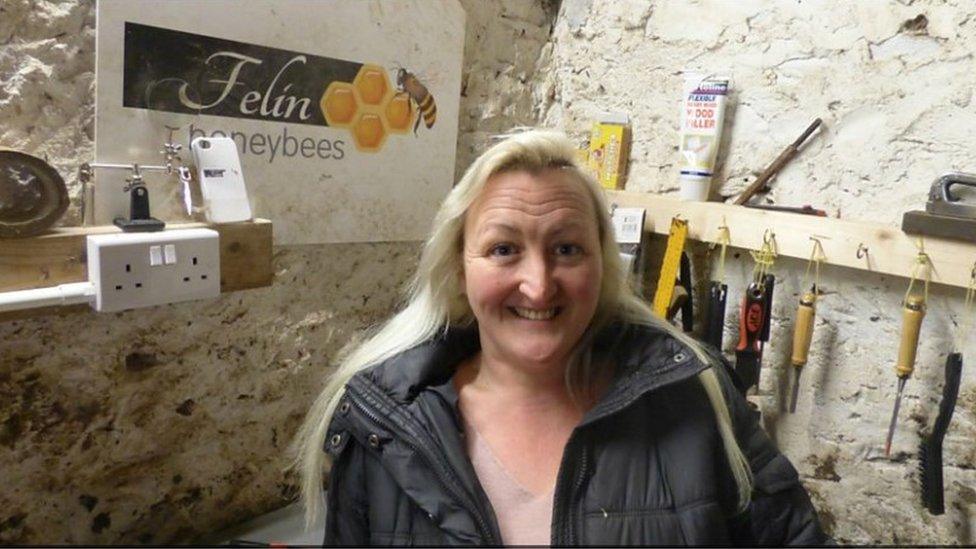
Katie Hayward of Felin Honey Bees uses Google Earth to find suitable locations to place bees
This same passion is felt by Katie Hayward of Anglesey-based Felin Honey Bees, who has 527 hives which produced four tonnes of honey last year.
She uses Google Earth to find woodlands and shelter belts suitable for honey bees, before approaching farmers and landowners to get permission to place them there.
"Beekeeping was a huge part of farming history and only in the last few years has it (changed to) become a higher-class hobby," she said.
"I want it back. But pesticides are a huge challenge. A farmer sprayed his field and we saw the hives dying in front of us.
"He was devastated, but it wasn't his fault. He didn't know."
Ms Hayward's love of bees is shared by Samantha Evans of Maentwrog in Gwynedd, who uses bees wax and honey to make skin care products.
'Bees saved me'
"I always talk to my bees. It used to be called 'the telling of the bees' where they were informed of births, deaths and marriages," she said.
"I've told my husband that if I die, he needs to put black shrouds on my hives."
Richard Jones of Llangennech, Carmarthenshire, went one step further and suggested beekeeping helped to save him.
He suffered from post-traumatic stress disorder after working for the Foreign and Commonwealth Office in Bosnia, Iraq and Afghanistan.
As well as winning a gold star at the Great Taste Awards in 2016, his honey is helping others affected by the condition.
"It has a lasting impact. One in three people who have been in a war will experience mental health problems," he said.
"Beekeeping is a good way of developing coping methods as you do it methodically and need to concentrate.
"Ex-servicemen and women are also outdoorsy, so it is really helpful."
- Published16 August 2016
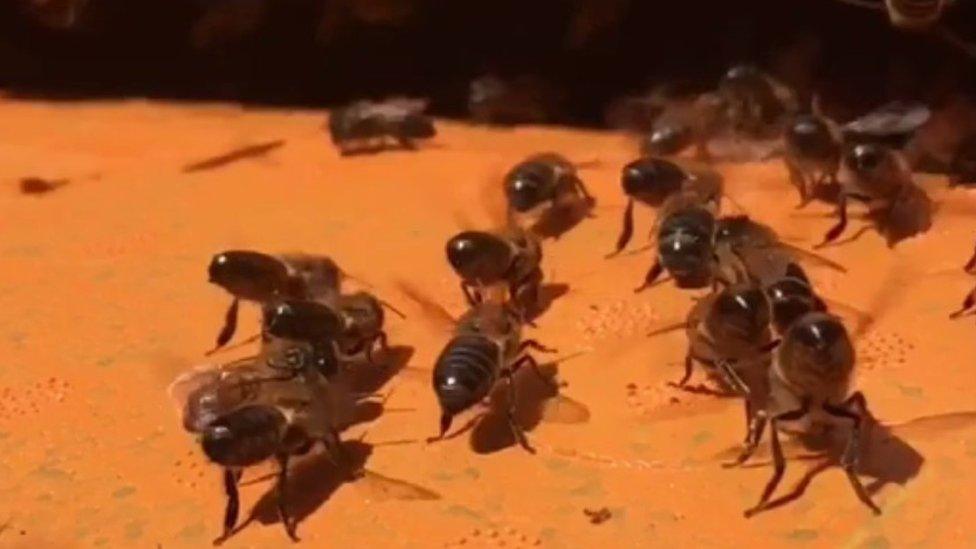
- Published15 July 2016
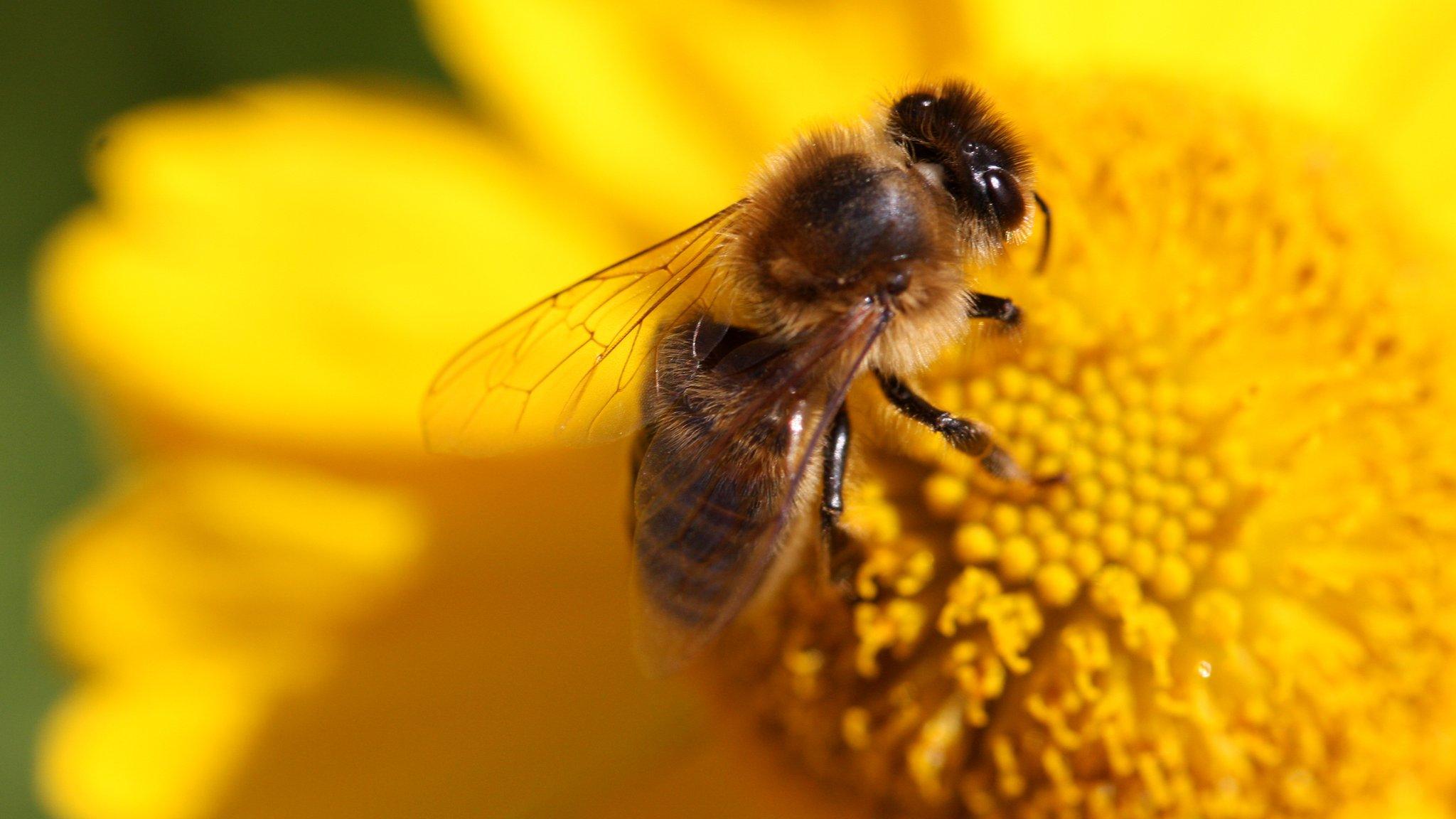
- Published17 February 2017
